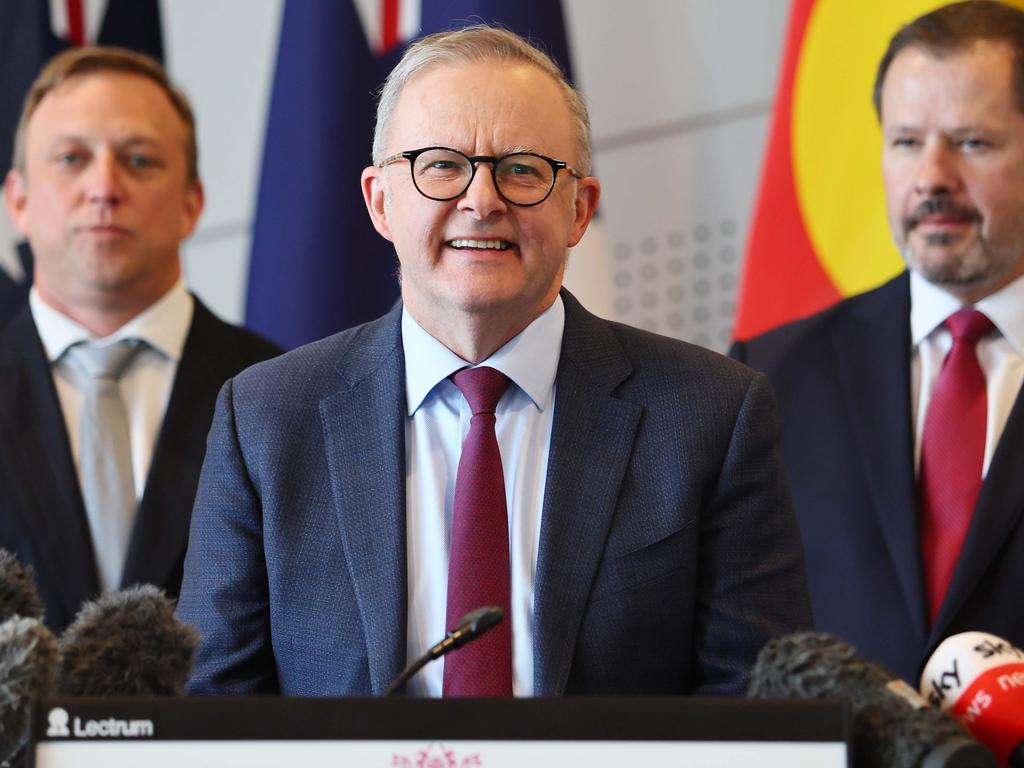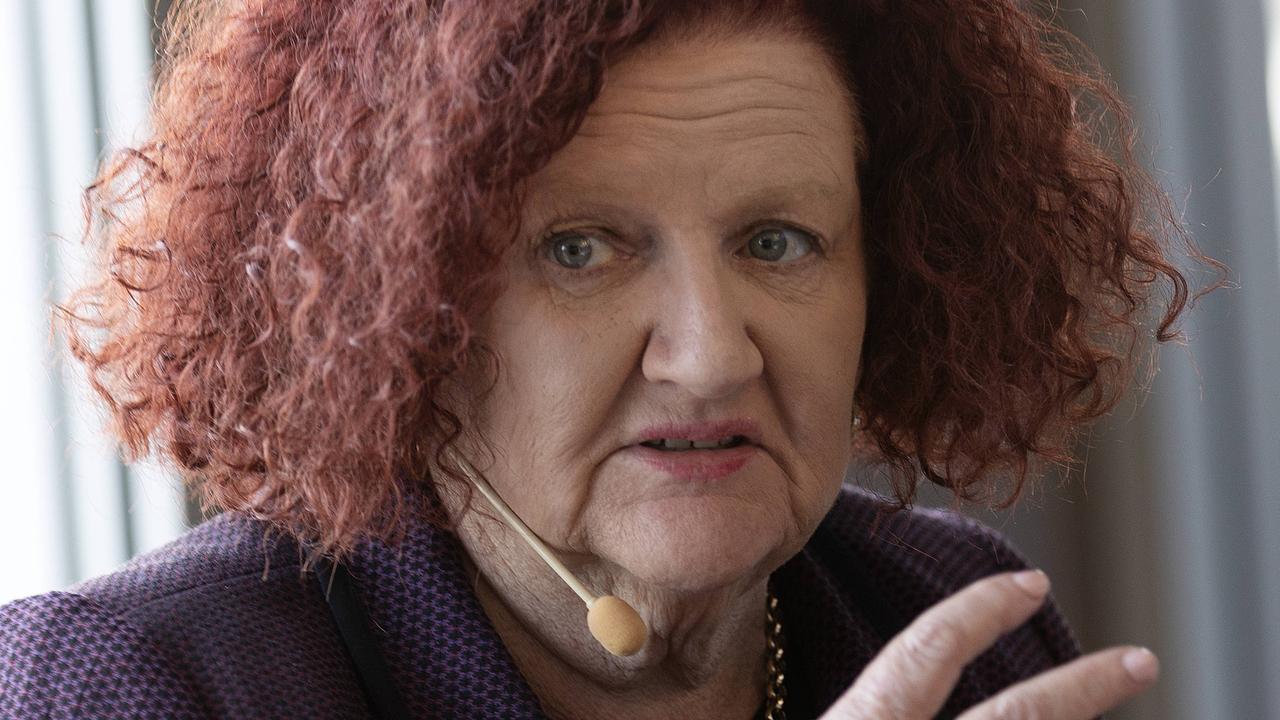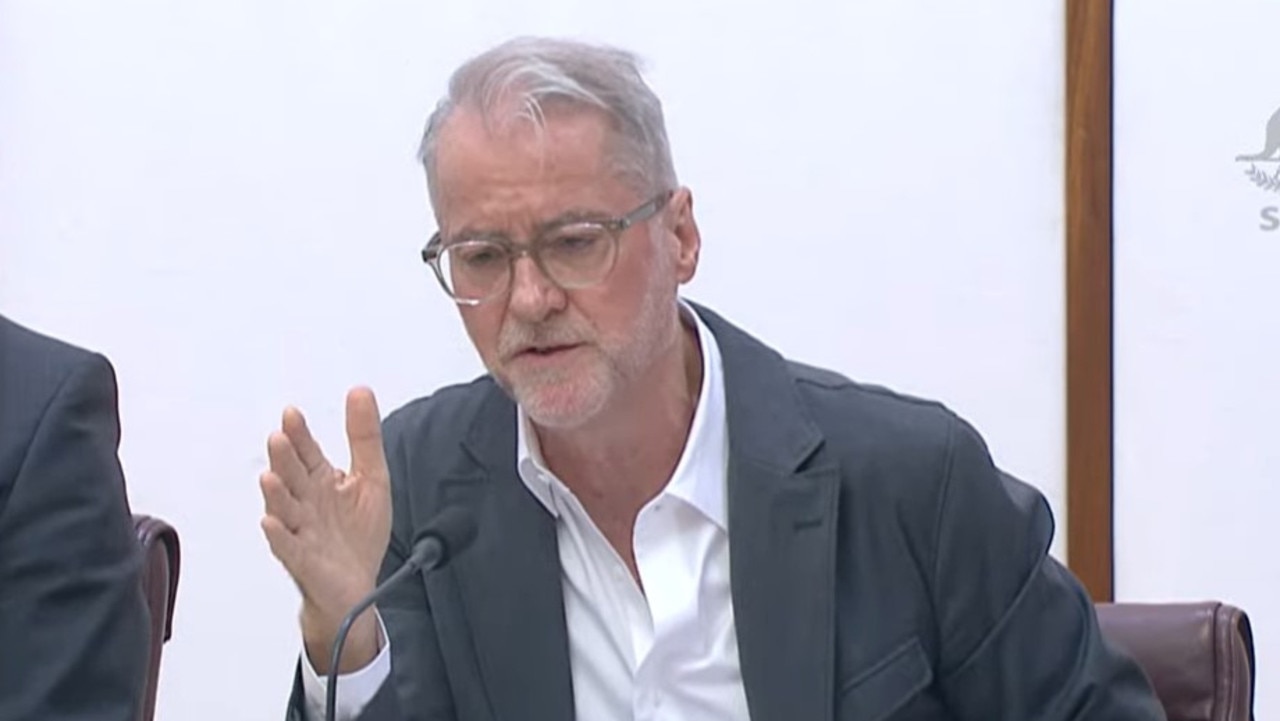Prime Minister’s Science Prizes awarded for lifesaving discoveries
Scientists curing cancer, a stargazing astrophysicist, engineers saving the planet and inspirational teachers have been honoured in the Prime Minister’s Prizes for Science. Discover more about the winners.
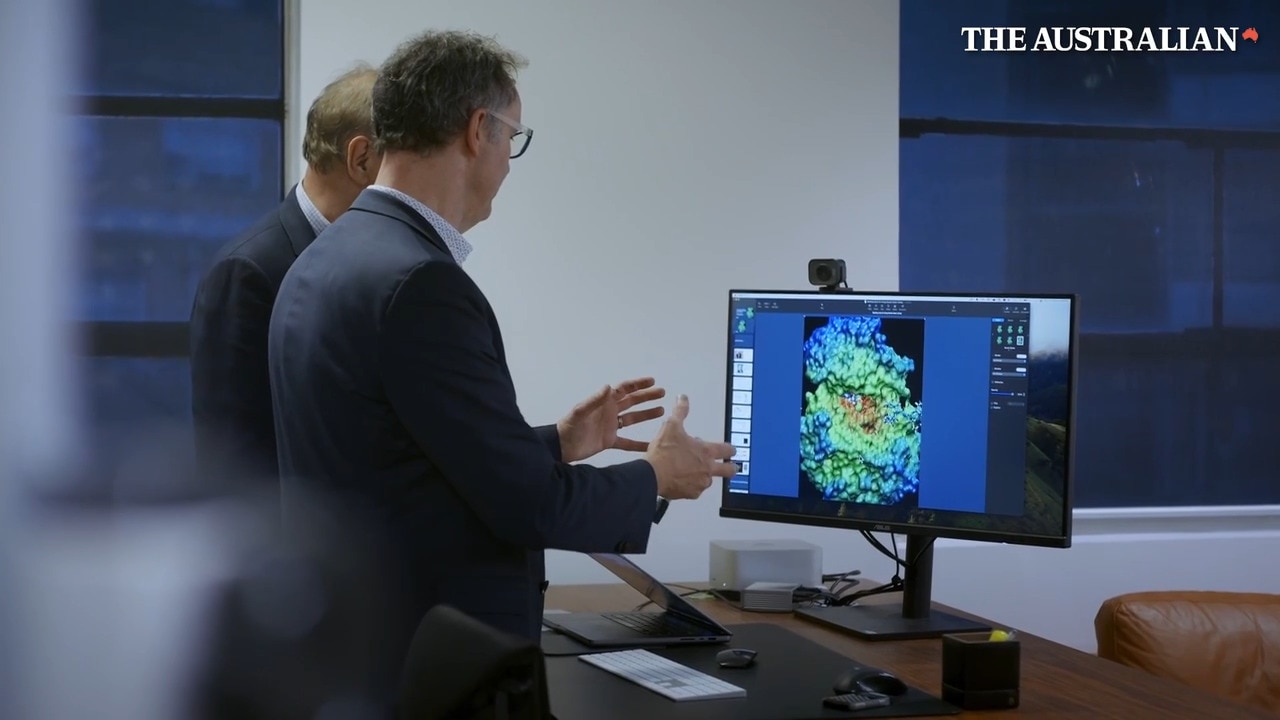
A starry-eyed schoolboy who was mesmerised by the moon landing has been awarded the 2024 Prime Minister’s Prize for Science.
Astrophysicist Matthew Bailes received the prestigious award in recognition of his discovery of fast radio bursts – considered one of the great mysteries of the universe.
He is among seven recipients of the Prime Minister’s Prizes for Science that were announced in Canberra on Tuesday night.
The awards also recognise a pair of scientists curing cancer, a quantum computing pioneer, a green energy inventor, a doctor making surgery safer for children, and two of the nation’s most inspiring science teachers.
Professor Bailes vividly remembers the excitement of seeing Neil Armstrong walk on the moon in 1969, when he was a six-year-old boy watching the moon landing on the black and white television his parents purchased for the event. He studied engineering at the University of Adelaide before switching to physics, then began his stellar career at NASA.
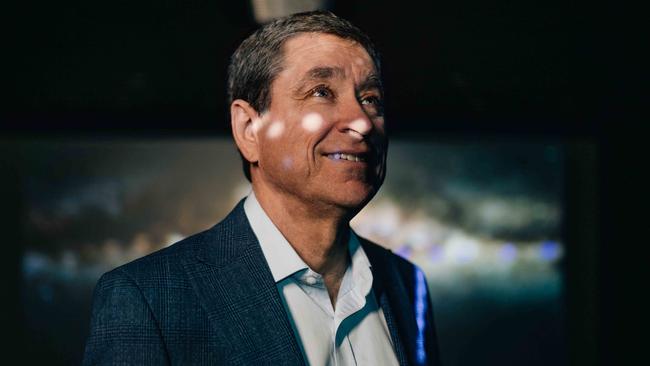
As a Distinguished Professor of Astrophysics at Swinburne University of Technology, he is in charge of OzGrav, the Australian Research Council centre for excellence for gravitational wave discovery.
Professor Bailes’ pioneering techniques in detecting fast radio bursts, or FRBs, in 2007 are still being used by scientists to study some of the most powerful explosions in the universe.
An FRB – an intense burst of radio waves lasting milliseconds – can emit the same amount of energy that the sun emits in a month.
Professor Bailes’ research team designs supercomputers for the largest radio telescopes in the world. In 2021, he founded a spin-off company, Fourier Space, to commercialise the technology his team created to study neutron stars, for designing communications and signal processing solutions for radio satellite receivers.
Innovators
The joint winners of the 2024 Prime Minister’s Prize for Innovation are Professor Andrew Wilks and Dr Chris Burns, recognised for inventing and commercialising a drug called momelotinib that is used to treat myelofibrosis, a form of bone marrow cancer affecting 100,000 Australians.
Professor Wilks discovered the enzymes causing abnormal cell growth in 1989, while working at the Ludwig Institute for Cancer Research in Melbourne.
He left academia to set up the Australian biotechnology company Cytopia, where he teamed up with Dr Burns, a medicinal chemist, to invent momelotinib to treat symptoms of the cancer and improve blood cell count.
Before Dr Burns and Professor Wilks developed their lifesaving drug, patients with myelofibrosis had a median life expectancy of six years. Dr Burns said the clinical trials showed that “within three months, patients were back out of bed, going back to work and enjoying their life’’.
Momelotinib secured US Food and Drug Administration approval in 2023 and European Medicines Agency approval in January this year.
Pharmaceutical giant GlaxoSmithKline acquired Momelotinib for $2.92bn in 2022.
Professor Wilks has enjoyed watching survivors “bouncing grandchildren on their knee’’.
“They’re still with us, and that’s actually more than enough reward in itself,’’ he said. “Momelotinib attacks the root cause of the disease and the tumour either disappears or is highly managed. Patients have a much longer lifespan.’’

Professor Wilks said he survived on a credit card for more than six months when he tried to commercialise his drug, before winning seed funding from the Brisbane-based Medica Holdings.
“I’d left the best academic job in Australia – it was a pretty lunatic thing to do, I suspect,’’ he said on Tuesday.
“It was a very difficult period trying to survive and keep going.
“We mortgaged the home, and my green American Express card paid the payroll on a number of occasions.
“It really was difficult, but the whole purpose was to start coming up with these therapeutic drugs that we could develop from some of the discoveries that we made.’’
Now Professor Wilks is giving a leg-up to fellow scientists, as an angel investor in medical research through his venture capitalist company SYNthesis BioVentures.
“We’re trying to invest in exactly the same stage science that I was at when I left academia,’’ he said. “There are some amazing people doing amazing stuff, but it’s the financial support for that translational piece that’s missing.
“Where everyone is now in terms of cancer discoveries is trying to engage with the immune system, and get it to engage with tumours and get rid of them. The other (research we are funding) is around inflammatory disease.’’
Life science
The 2024 Frank Fenner Prize for Life Scientist of the Year has been awarded to Professor Britta Regli-von Ungern-Sternberg for her life-changing research in reducing the risks associated with anaesthesia for children, to make surgery and recovery safer.
As the chair of pediatric anaesthesia at the University of Western Australia, and a consultant anaesthetist at Perth Children’s Hospital, Professor Ungern-Sternberg knows first-hand the risks of surgery for children.
One in seven children suffers breathing problems under anaesthetic, but Professor Regli-von Ungern-Sternberg discovered that treatment with an asthma puffer can prevent problems.
She is also working on ways to reduce children’s anxiety, including changing the flavour of unpalatable medicines and pain relief, and is seeking commercial partners to produce pediatric drug formulations.
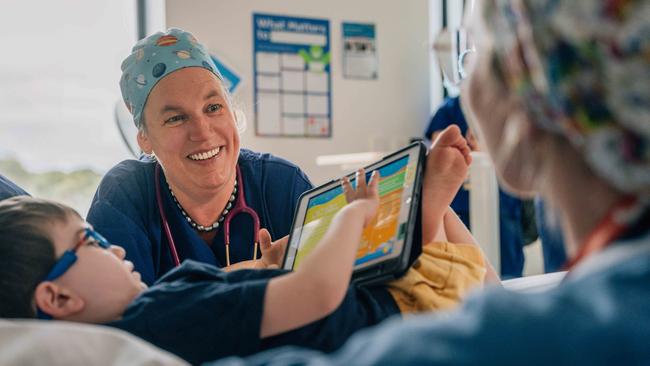
Physical science
The 2024 Malcolm McIntosh Prize for Physical Scientist of the Year was awarded to RMIT University Professor Tianyi Ma, in recognition of his groundbreaking work in renewable energy.
Professor Ma pioneered a new technology that cuts the cost of producing green hydrogen, by creating the first square metre-sized photocatalytic device that floats on water and can separately generate hydrogen and oxygen.
He also developed a process for recycling CO2 emissions, by converting them into green methanol: “My team’s work has the potential to reduce global warming in the long-term, and support Australia in its clean energy transition.”
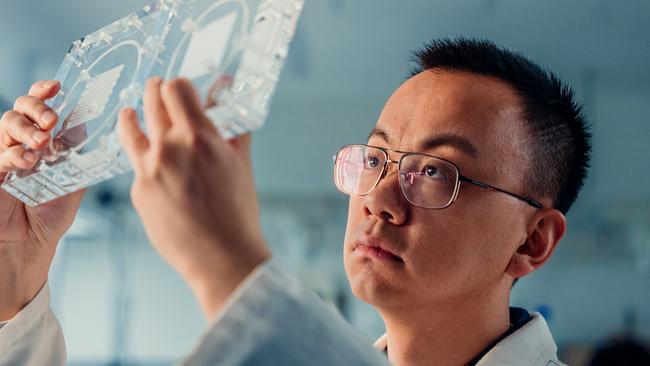
New innovators
The 2024 Prize for New Innovators has been awarded to Dr Andrew Horsley, the co-founder of computing research company Quantum Brilliance.
He is the inventor of an integrated computing chip that reduces the size, weight, cost and power consumption of quantum computers so they can be used in manufacturing and robotics, or to detect natural disasters.
His research team at the ANU created a technique that uses synthetic diamonds to build quantum computers that operate at room temperature, opening the door to mobile quantum computing.

Teachers
Two teachers have been honoured in the awards for their teaching innovation and excellence.
Daniel Edwards, from Montello Primary School in Tasmania, has won the 2024 Prime Minister’s Prize for Excellence in Science Teaching in Primary Schools.
He is the founder of GreenSTEM Education, Tasmania’s first charity to help underprivileged children access STEM education.
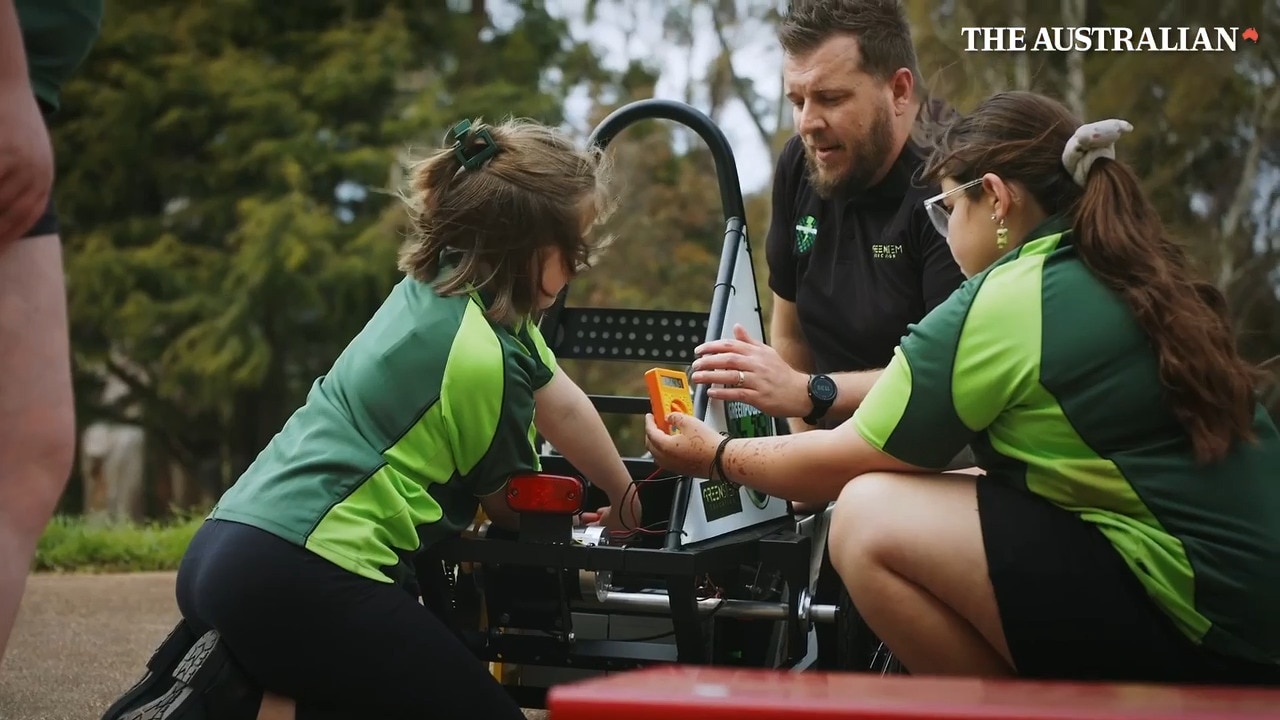
Sydney STEM teacher Alice Leung, from Concord High School, has been awarded the 2024 Prime Minister’s Prize for Excellence in Science Teaching in Secondary Schools.

“I aim to make science as fun as possible for my students,’’ she said.



